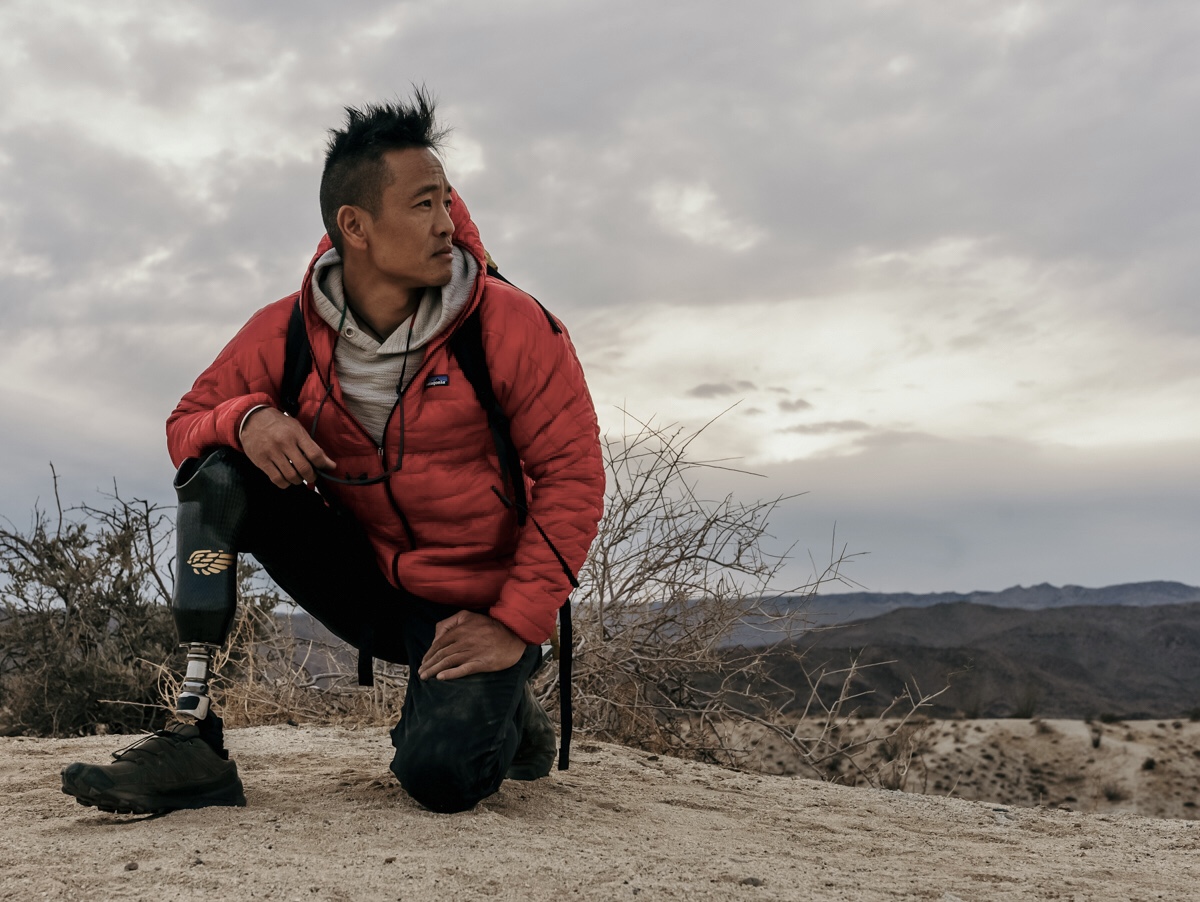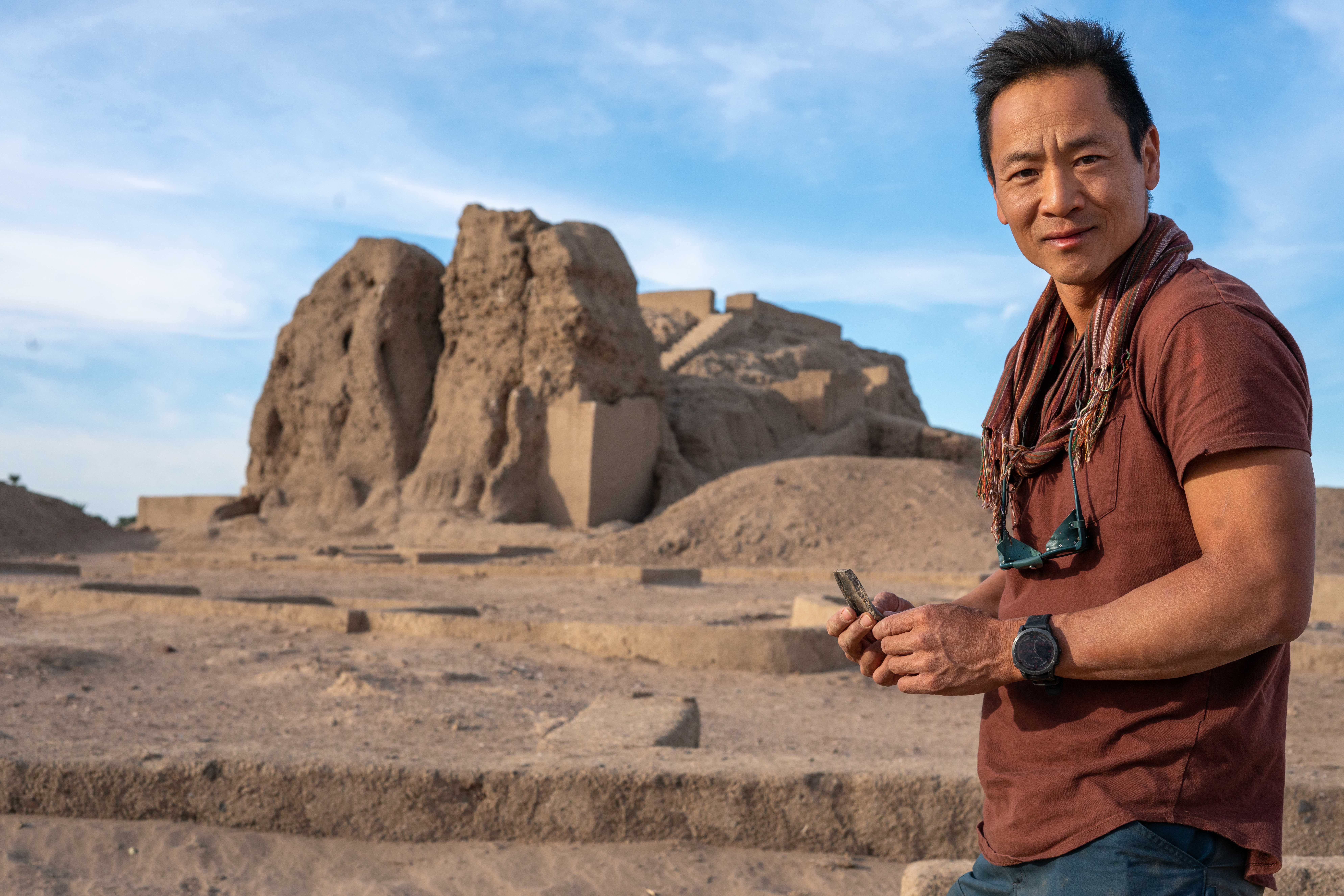Albert Lin
Dr. Albert Yu-Min Lin, Ph.D.

Albert is an award winning Explorer of the National Geographic Society, serial entrepreneur, UCSD scientist, and storyteller. From the remote highlands of Mongolia to the jungles of Guatemala he has applied an innovator’s approach to exploration.
“The most exciting thing about science is the unknown — anything is possible”, says Lin
His career began with the Valley of the Khans Project, where he used satellites, drones, geophysics, and intensive ground exploration to search for the tomb of Genghis Khan. Albert has also applied similar approaches to Maya sites in Guatemala and First Emperor’s tomb in Xian, China.
While in Mongolia he developed the first platform to crowdsource human analytics of large amounts of Satellite imagery, merging remote field exploration with public participation. The success of this platform led to requested briefings at the pentagon, the NGA, and the Harvard Business School where he was also invited to serve as an advisor to the HBS Digital Initiative. He subsequently co-founded the crowd-based analytics company Tomnod (mongolian word meaning “big eye”) which was acquired in 2011 by the leading commercial satellite imagery provider DigitalGlobe. Albert now serves on the DigitalGlobe Foundation’s board of directors. The innovation has since been used on humanitarian efforts, environmental monitoring, search and rescue (including an 8 million person search for flight MH370), and is currently being applied by National Geographic to survey threatened archaeological sites globally.

In 2015 he co-founded the digital k-12 education platform Planet3 Inc. (http://exploreplanet3.com) to democratize the “ah-ha feeling” that is at the frontier of exploration and science and has successfully raised $15M for this effort to date. “We are in a battle for science literacy, and that battle will be won or lost in the classroom”, he said in an address on the National Mall during the 2017 March for Science.
Most recently, Albert has taken on innovation in a much more personal context becoming partially Bionic. Exploring the interface between mind, body, society and technology as a frontier, he has pushed the human boundary further.
Lin has received multiple recognitions, including National Geographic’s Adventurer of the Year in 2009, the United States Geospatial Intelligence Academic Achievement Award, the Explorer’s Club’s Lowell Thomas Medal, and the Nevada Medal (as the youngest ever recipient). His feature in National Geographic’s “Next Generation Explorer” campaign was recognized with an Emmy in the category of Outstanding Promotional Announcement. His work has been featured in outlets including the Washington Post, BBC, NPR, ABC news, TEDx, Wired magazine, Gizmodo, al Jazeera, National Geographic, Newsweek (cover story), and the Harvard Business Review.
As a storyteller Lin has hosted and narrated multiple documentary films including “the Forbidden Tomb of Genghis Khan”, and “China’s Mega Tomb”. With storytelling in his heart, Albert has also lectured worldwide in venues ranging from the Sorbonne in Paris to Singapore’s Esplanade.
Albert is an avid surfer, climber, guitar player, photographer, and father. His middle name “Yu Min” translates to “citizen of the universe”.
Albert is an award winning Explorer of the National Geographic Society, serial entrepreneur, UCSD scientist, and storyteller. From the remote highlands of Mongolia to the jungles of Guatemala he has applied an innovator’s approach to exploration.
“The most exciting thing about science is the unknown — anything is possible”, says Lin
His career began with the Valley of the Khans Project, where he used satellites, drones, geophysics, and intensive ground exploration to search for the tomb of Genghis Khan. Albert has also applied similar approaches to Maya sites in Guatemala and First Emperor’s tomb in Xian, China.
While in Mongolia he developed the first platform to crowdsource human analytics of large amounts of Satellite imagery, merging remote field exploration with public participation. The success of this platform led to requested briefings at the pentagon, the NGA, and the Harvard Business School where he was also invited to serve as an advisor to the HBS Digital Initiative. He subsequently co-founded the crowd-based analytics company Tomnod (mongolian word meaning “big eye”) which was acquired in 2011 by the leading commercial satellite imagery provider DigitalGlobe. Albert now serves on the DigitalGlobe Foundation’s board of directors. The innovation has since been used on humanitarian efforts, environmental monitoring, search and rescue (including an 8 million person search for flight MH370), and is currently being applied by National Geographic to survey threatened archaeological sites globally.
In 2015 he co-founded the digital k-12 education platform Planet3 Inc. (http://exploreplanet3.com) to democratize the “ah-ha feeling” that is at the frontier of exploration and science and has successfully raised $15M for this effort to date. “We are in a battle for science literacy, and that battle will be won or lost in the classroom”, he said in an address on the National Mall during the 2017 March for Science.
Most recently, Albert has taken on innovation in a much more personal context becoming partially Bionic. Exploring the interface between mind, body, society and technology as a frontier, he has pushed the human boundary further.
Lin has received multiple recognitions, including National Geographic’s Adventurer of the Year in 2009, the United States Geospatial Intelligence Academic Achievement Award, the Explorer’s Club’s Lowell Thomas Medal, and the Nevada Medal (as the youngest ever recipient). His feature in National Geographic’s “Next Generation Explorer” campaign was recognized with an Emmy in the category of Outstanding Promotional Announcement. His work has been featured in outlets including the Washington Post, BBC, NPR, ABC news, TEDx, Wired magazine, Gizmodo, al Jazeera, National Geographic, Newsweek (cover story), and the Harvard Business Review.
As a storyteller Lin has hosted and narrated multiple documentary films including “the Forbidden Tomb of Genghis Khan”, and “China’s Mega Tomb”. With storytelling in his heart, Albert has also lectured worldwide in venues ranging from the Sorbonne in Paris to Singapore’s Esplanade.
Albert is an avid surfer, climber, guitar player, photographer, and father. His middle name “Yu Min” translates to “citizen of the universe”.
